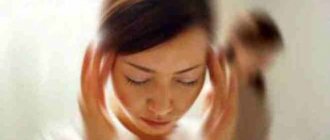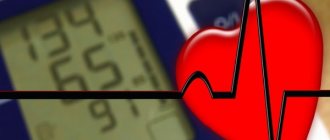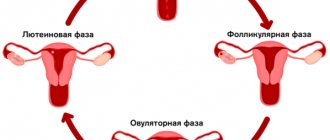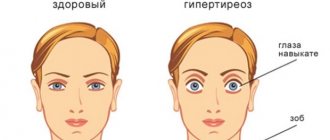Why do men feel dizzy at normal blood pressure?
Men tend to remain silent and brush aside the problems that bother them, especially at the young age of 30-40, but if you do not pay attention to dizziness at this age, after 10-15 years a number of serious diseases and problems can be diagnosed, which will take twice as long to fight more difficult.
The main causes of dizziness in men
- seasickness, motion sickness in transport, which can occur, including among drivers, people who spend a lot of time behind the wheel, in this case, dizziness is also accompanied by nausea and vomiting;
- insufficient oxygen supply to brain cells, deterioration of blood circulation;
- traumatic brain injury;
- psychogenic factors: depression, stress, phobias;
- frequent consumption of strong, alcoholic drinks;
- poor nutrition, long gaps between meals.
What can cause dizziness?
According to statistics, from 6 to 20% of men, regardless of age, at least sometimes experience dizziness. There are many reasons for this condition: from alcohol abuse, overheating or lack of sleep to serious diseases of the heart, blood vessels, brain or other organs. Therefore, if intoxication with alcohol, medications or other substances is excluded, you rest a lot and spend time in the fresh air, and this unpleasant sensation recurs, then you need to consult a doctor who will prescribe an additional examination and determine the cause.
We bring to your attention a video in which a neurologist, head of the neurological department, Evgeniy Igorevich Panfilov, talks about the problem:
Dietary disorders can cause dizziness, general weakness of the body and darkening of the eyes. Very often it occurs in those who adhere to unbalanced diets or completely refuse food. In this case, it is enough to adjust your diet by including foods rich in vitamins and nutrients.
If a man’s dizziness is caused by fatigue and lack of sleep, then it is necessary to reconsider his daily routine, providing himself with adequate rest, 8 hours of sleep at night, regular walks outside, playing sports, doing gymnastics in the morning, etc.
The cause of this disorder may be a malfunction of the vestibular system or damage to the inner ear due to injury, the presence of a virus or an infectious disease. In this case, we talk about peripheral vertigo. But there is also a central type, which is associated with diseases or lesions of the brain. These reasons include:
- Migraine.
- Encephalitis
Find out how to quickly get rid of migraines?
- Traumatic brain injury.
- Cerebrovascular accident.
- Multiple sclerosis.
If, along with dizziness, a man feels nausea and muscle weakness, this may indicate damage to the optic nerve (for example, its inflammation).
Why do women feel dizzy with normal blood pressure?
Human nature is structured in such a way that men work with their hands, and women work with their minds, and this is not surprising, because males have greater strength and endurance, and women, as a rule, are more intelligent and intellectually developed.
Therefore, impulses travel to parts of the body in different ways, receptors work at different speeds, and the causes of dizziness in men and women may differ.
The main causes of dizziness in women
- oxygen starvation of the brain;
- motion sickness, seasickness;
- vitamin deficiency, especially in the autumn/spring periods;
- serious hormonal imbalances can cause frequent dizziness, accompanied by nausea and possibly vomiting;
- abuse of diets, due to which the body receives less or does not receive vital and necessary elements at all;
- pregnancy, postpartum period, lactation, menstruation, menopause;
- psychological factors, neuroses, stress...
Existing forms
Depending on the ailments that a person suffers from, the forms of vertigo can vary greatly.
Expert observations indicate that this symptom occurs much more often with the following diseases:
- vertebrobasilar insufficiency;
- osteochondrosis;
- Meniere's disease;
- brain tumors;
- inflammation of the vestibular nerve;
- basilar migraine.
Most cases of vertigo present in the form of benign paroxysmal positional vertigo. It is more often observed in older people who have crossed the 50-year mark.
Psychogenic dizziness is also a common form. It is easily recognized by the accompanying general weakness, and it occurs after strong emotional shocks or great fatigue. This ailment can often bother those who suffer from autonomic dysfunction syndrome.
Osteochondrosis and other diseases of the spine that cause circulatory disorders become the root cause of such forms of vertigo, which cause a feeling of unsteady gait. If the function of the blood supply to the brain by the vertebral and basilar arteries is weakened for a long time, this leads to vertebrobasilar insufficiency, in which forms of dizziness are sudden and even fainting.
Various forms of dizziness occur with diseases of the middle ear. Among them is Meniere's syndrome, when deafness is added to dizziness.
Also on this list is inflammation of the vestibular nerve, which serves as a conductor of nerve signals from the inner ear to the brain.
Swelling and tumors of the brain, located close to the bony labyrinth of the inner ear, cause severe forms of dizziness.
Sometimes dizziness occurs due to the accumulation of sulfur and the formation of a plug in the external auditory canal.
Causes of dizziness at normal blood pressure
In addition to all of the above, there are common factors that cause dizziness, regardless of gender.
Osteochondrosis of the cervical vertebra
Osteochondrosis is a very relevant and common cause, because the presence of the disease is the main factor in the deterioration of blood circulation in the brain.
In addition to dizziness, a person is overcome by weakness, there may be double vision, darkness in the eyes, and also impaired coordination.
Disturbances in the functioning of the vestibular apparatus
The vestibular apparatus is an organ that is responsible for perceiving changes in the position of the head and body, for orientation in space and for the directions of each body movement. The vestibular apparatus itself is tiny in size and located in the inner ear. If this is the reason, then additionally there will be nausea, increased sweating, even during sleep, and the sweat will be cold.
Malignant or benign brain tumors
In addition to dizziness, a clear sign may also be unilateral hearing impairment, in other words, deafness in one ear. In this case, differential diagnosis is necessary to confirm and debunk certain assumptions.
Psychological disorders
Overexcitement, stress, increased anxiety, a feeling of heaviness in the head, and it also seems that it is impossible to breathe deeply, like a lack of oxygen.
Taking a specific group of medications
Dizziness can occur after antibiotic therapy, long-term use of sedatives, and antidepressants.
Multiple sclerosis
In this case, the dizziness is severe, since an inflammatory process in the brain may begin to develop, destroying its nerve endings. At the same time, the patient experiences prolonged nausea, vomiting, and serious disturbances in coordination and the motor system.
Labyrinthitis (inflammation of the inner ear)
Dizziness is accompanied by severe headache, nausea, lack of coordination, and purulent discharge may occur from the ear itself.
Atherosclerosis of cerebral vessels
Dizziness occurs due to constriction of blood vessels in the brain, a common cause for older people.
Disorders of the gastrointestinal tract
Chronic gastrointestinal diseases or dysbiosis may be accompanied by severe dizziness, in combination with nausea, stool disorders, vomiting, and abdominal pain.
Viral or infectious diseases
Especially if the disease occurs with elevated body temperature, it will be accompanied by dizziness, general weakness, and drowsiness.
Sudden change in body position
If you quickly and abruptly get out of bed, bend over, raise your head up, etc., you may experience dizziness, darkening or spots before your eyes, as well as clouding of consciousness.
Blood diseases: anemia, diabetes mellitus
These are the most basic reasons why a person may experience dizziness, general malaise and depression; the sooner the cause of the disease can be diagnosed, the greater the likelihood of competent and successful treatment.
Causes of one-time dizziness
Even if severe dizziness was episodic and did not recur for a long time, this does not mean that there is no need to find out the reasons for its occurrence. Why does a healthy person feel dizzy?
The following factors may influence this:
- Poisoning is the result of exposure to toxic substances through consumption of alcohol, expired foods, poisonous mushrooms and plants, overdose of medications, and constant work with chemicals. Vomiting and dizziness are among the most common symptoms;
- climate change;
- overheating, sunstroke;
- violation of the diet, addiction to diets or the practice of fasting, in which there is a sharp decrease in blood glucose levels. In this case, lethargy, weakness, and often dizziness are observed;
- excessive physical activity;
- fatigue, lack of sleep;
- Nicotine poisoning - overdose or smoking on an empty stomach. Dizziness occurs especially often during the first “morning” cigarette.
Eliminating dizziness under these circumstances is simple. It is enough to take the necessary security measures and eliminate harmful factors. All these reasons do not cause systematic damage to the body, but nevertheless, ignoring them can also lead to significant health consequences.
How to get rid of dizziness and nausea
There are a sufficient number of ways to get rid of dizziness at home, using folk methods and special recommendations from doctors. Let's look at simple and effective ways to overcome the unpleasant sensations of nausea and dizziness.
Massage
If dizziness bothers you frequently, the procedure should be carried out daily or every other day:
- Place the index and middle fingers of both hands on the frontal bone and move the skin with light, pressing movements, either clockwise or counterclockwise, without sliding along the surface of the skin; do the same in the temple area.
- Then, the same movements should be repeated from the crown to the top of the ears and from the crown to the back of the head. You can also do a massage separately, directly to the back of the head.
- In conclusion, we make the following movement, fingers folded into a lock must be placed with palms on the scalp, just above the back of the head and massaged in a circle, or move the scalp, now in one direction, then in the other, without releasing or moving your hands so that they don’t slide over your head.
The total duration of the session is about 10 minutes, each recommended movement should be performed for about 2 minutes, you will feel an improvement in your well-being during the massage. The main convenience is that the patient can do it himself, and no outside help is required. It is best done in a lying position, but it can also be done while sitting.
Herbs
Herbs have been used for centuries to treat and eliminate a variety of health problems, and dizziness is no exception to this list.
It is better to start treatment after a preliminary consultation with a doctor, so as not to provoke remissions and exacerbations of any chronic diseases.
Melissa
You can use both fresh and dried. It is necessary to finely chop lemon balm leaves in the amount of one tablespoon, pour a glass of boiling water over it, close the lid and leave for 5-7 minutes to infuse, take during attacks, or in the evenings, before bed. You can add honey, sugar and other sweeteners to the drink.
Clover
Add a teaspoon of flowers to 200 ml of boiling water, simmer over low heat for 5 minutes, strain after cooling, and drink 2 tablespoons 3-4 times during the day.
Plantain
Pour 15 grams of dry crushed plantain leaves into 250 ml of boiling water, cover with a lid, wrap in a towel and leave until cool, strain, mix with a spoon of honey and drink an hour before bedtime for at least 10 days.
Parsley
Pour a tablespoon of parsley seeds into a glass of boiled, cooled water, stir with a spoon and leave for 8 hours under a closed lid, then strain, and consume 50 milliliters before each meal (3-4 times a day).
Collection
Combine 75 grams of dried linden inflorescences with 100 grams of mint leaves and 50 grams of crushed peony roots. Add 2 tablespoons of the resulting mixture to 500 ml of boiling water, leave to infuse overnight, strain in the morning and take half a glass of the product 15 minutes before breakfast, lunch, dinner.
Juices
Recipe No. 1
Carrot juice is an excellent remedy for dizziness and nausea, and it will also relieve inflammation and heaviness in the eyes during headaches. It is enough to take 100 ml of the drink 1-2 times a day.
Recipe No. 2
Beetroot juice is the best remedy if dizziness is associated with anemia or other blood problems. After all, beets contain a large amount of iron, and due to this, it helps to increase the level of hemoglobin in the body, which is especially useful for pregnant women and adolescents. Take 150 ml every morning, on an empty stomach, it doesn’t matter that the juice is freshly prepared, you can prepare it in the evening.
Recipe No. 3
Mix carrot, beet and pomegranate juice in a ratio of 3:2:1, consume 20 ml before each meal, 3-4 times a week.
Tinctures
Recipe No. 1
Peel 300 grams of garlic and place whole cloves in a 0.5 liter container, fill with pure 96% alcohol and leave for 2 weeks in a dark place, under a closed lid. Take daily, once a day, diluting 20 drops (about a teaspoon) of tincture in 200 milliliters of cow's milk. The prepared volume is equal to one course of treatment.
Recipe No. 2
Four tablespoons of crushed hawthorn fruits, pour 200 milliliters of ethyl alcohol, close tightly and leave in the refrigerator for 21 days, shaking the mixture daily. Take 2-3 times a day, after meals, diluting a tablespoon in 50 ml of clean water. The course is no more than two weeks. You can also buy ready-made hawthorn tincture at the pharmacy and drink it according to the same principle as homemade.
Recipe No. 3
Grate 100 grams of fresh ginger root on a fine grater or cut into thin slices, mix with 30 grams of dry lemon balm herb, pour in 400 ml of vodka, leave for one week in a dark place, shaking once every 2 days. Then, strain the tincture through 4 layers of gauze, and take a dessert spoon in the morning and at night for 21 days.
All ready-made tinctures are stored in the refrigerator and are suitable for no more than 1.5 months after production; ready-made pharmacy tinctures with alcohol can be used within six months from the moment the bottle is opened.
Folk remedies
Folk remedies have positive results. To do this, you can use camphor in any form. It is also useful to use fern or clover based products. Plant components are used both fresh and dried. For 1 tbsp. plants, add 250 ml of boiling water, and take 1 tbsp. before meals. The improvement will be rapid.
In case of sudden attacks you will need:
Lie down, wet the towel and leave it on your forehead.
- Lie down with your eyes closed for about 5-10 minutes.
- Sit down and take a mug of chilled strong coffee.
For quick help, you can use a mint-based tincture, take 20 drops with a cup of water. In case of frequent attacks, it is recommended to add ingredients that contain a lot of phosphorus to the diet.
Medicines for dizziness and nausea
This group of drugs should be prescribed exclusively by your doctor!
I will help you overcome attacks of dizziness and nausea:
- Cinnarizine;
- Betahistine;
- Vestibo;
- Vinpocetine;
- Piracetam.
This group of drugs will improve cerebral circulation, help overcome tinnitus and reduce the feeling of nausea.
If attacks of nausea and vomiting attack more, the following will come to the rescue:
- Metoclopramide;
- Cerucal;
- Airsea.
If the reason lies in increased nervousness, stress, anxiety, then you should take:
- Glycine;
- Phenibut;
- Bifren;
- Sedaphyton.
Symptoms
If you feel dizzy or feel weak, you should first measure your blood pressure. This condition is typical for elevated levels, then hypertension is diagnosed. Otherwise, the reasons will be in other pathological processes. To establish an accurate diagnosis, the patient must describe the symptoms that are present, this could be:
Headache.
- Nausea, sometimes vomiting.
- Depression.
- General malaise.
- Joint pain.
- Muscle weakness.
- Discomfort inside.
- Noise in ears.
- Isolation of cold for now.
It is also important to determine the pulse rate; if the pulse is frequent or rare, the doctor can check the heart and other organs.
What to do to avoid dizziness
There are certain rules that will help prevent dizziness; they can also increase the effectiveness of treatment if the problem already exists:
- Maintain a daily drinking regime to avoid dehydration. For a person with normal weight, this is 1.5-2.5 liters of water, for people with excess body weight - up to 1.5 liters.
- Do not abuse alcohol or cigarettes, but it is better to avoid them altogether. After all, there is such a condition as nicotine addiction, in which a person, without smoking a cigarette, feels severe and prolonged dizziness and nausea. The same, you should not get carried away with caffeinated drinks.
- Eat a balanced diet so that the body does not experience a deficiency of macro and micro elements.
- Every day, spend at least 30 minutes in the fresh air.
- Avoid stress and overwork, and also make sure that your sleep is complete and of high quality.
- Ventilate the rooms in which you spend a lot of time, and be sure to ventilate the bedroom for at least a few minutes before going to bed. Thus, you can not only get rid of dizziness, but also reduce the risk of contracting viral diseases.
- When experiencing motion sickness in transport, have special anti-nausea pills or mints or chewing gum with you.
- Avoid sudden movements.
Attacks of dizziness usually do not pose a significant threat to a person’s health and life, but still, this symptom should not be neglected. If you increasingly begin to notice that this manifestation bothers you, consult a general practitioner or neurologist, take the necessary tests and undergo a short examination to be sure that there is no serious illness behind this minor symptom.
Rate this article: ( 8 ratings, average: 4.63 out of 5)
Differential diagnosis
Dizziness can be either the primary, sole, or secondary symptom.
It is impossible to judge the seriousness (or non-seriousness) of a condition by this criterion alone. If a person experiences vertigo for several days in a row, this is a sure sign that he should see a doctor without delay, even if there are no other symptoms.
To identify the causes of dizziness, the patient should consult a neurologist. The doctor will do a Dix-Hallpike test, a test for the integrity of the vestibulo-ocular reflex and other instrumental studies (if necessary) - posturography, a rotating chair.
In addition, tests are prescribed:
- Complete blood count, glucose level, biochemistry.
- Electrocardiogram.
- X-ray or CT scan of the cervical spine.
- Vascular examination.
- MRI of the brain (if there is a suspicion of tumor processes).
At an appointment with a general practitioner or neurologist, the patient should be prepared to describe in detail all the sensations that accompany dizziness. Subjective feelings will help the doctor make the correct diagnosis.
The specialist will also ask a number of clarifying questions to clarify the provoking component. It is also important what stops an attack of dizziness (food, fresh air or a sip of water).
What is dizziness and classification of the process
Vertigo is the term for dizziness in traditional modern medicine.
Before highlighting the main causes of this phenomenon and the main classification, it is necessary to understand what the condition is.
Dizziness is a pathological condition characterized by loss of balance; it seems to a person that objects around him are moving.
Today, there are two main forms of dizziness.
- The false is not accompanied by a disturbance in the vestibular apparatus; it manifests itself through “darkness” in the eyes.
- The truth is a loss of balance, usually due to pathologies in the peripheral zone, or in the central nervous system.
The true form is considered the most dangerous because it is caused by more dangerous diseases.
Lack of treatment in this case can lead to a significant deterioration in the patient’s condition and death.
First aid and treatment features
If the diagnosis is correct, therapy can begin. If the cause of the pathology is not any dangerous disease, then you can cope with dizziness yourself. To do this, you can take the following measures:
- If an attack begins, you need to go to bed. This will make it possible to improve blood circulation in the brain and avoid falling.
- It is better not to make any sudden turns or movements of the head.
- You can do some simple physical exercises.
- Severe dizziness can be eliminated with a contrast shower.
- Vestibular gymnastics is considered very useful for men or women (especially during pregnancy).
- It is also important to stop drinking alcohol and smoking.
Your doctor may prescribe medications to treat severe dizziness. Here are some of them:
- Nootropic drugs and psychostimulants: Piracetam.
- Vertigoholics: Cinnarizine.
- Anxiolytics: Diazepam.
- Combined drugs: Phezam.
You can also use some folk remedies. However, they should not be considered a complete treatment, since they are not always able to eliminate the very cause of dizziness. However, temporary relief can be achieved. For example, this recipe will help: you should dissolve a raw egg in hot milk and drink it. This treatment must be done daily for at least a week.
For severe dizziness, you can also drink linden and mint tea. It is important to pay attention to the treatment of children and pregnant women, as they need special therapy.
Be that as it may, treatment should be prescribed by a doctor.
True and false vertigo
Among other things, with normal blood pressure, there are two types of dizziness: true and false. They are divided according to the pathological conditions inherent in each.
The concept of vertigo is true dizziness. With this illness, the patient describes his condition as a continuous movement in a circle of all nearby objects.
It is similar to the feeling that occurs after visiting a carousel, when the ride has already stopped, and the body has not yet rebuilt itself after the circular movements. The main factors in the occurrence of vertigo are disorders of the vestibular apparatus and disorders of the receptors of the musculoskeletal system.
There are two types of vertigo:
- central;
- peripheral.
The cause of peripheral vertigo is the receipt of distorted information about the external environment from peripheral organs. Central vertigo occurs due to internal pathologies of the nerve centers.
The peripheral type is characterized by pronounced symptoms, which are difficult to tolerate by patients for several days. In addition to dizziness, its manifestations include:
- hearing loss, ringing in the ears;
- nausea with vomiting;
- increased sweating;
- tachycardia.
Central vertigo is characterized by an increasing course, without pronounced manifestations. There are no hearing impairments in this type.
The term “false dizziness” refers to a condition in which there is no pronounced sensation of dizziness, but other pathological visual and tactile sensations are present. Among them:
- fainting state;
- a veil before the eyes;
- feeling of imbalance;
- weakness in the limbs.
Such complaints, as a rule, are not related to disorders of the functions of the vestibular apparatus. Most often, their causes are autonomic dysfunction, anemia and physical exhaustion, fatigue, and a critical amount of glucose in the blood during diabetes.
When dizziness becomes a frequent companion, preventing you from leading a full life, there is no need to postpone a visit to the doctor. You should go to the hospital, clearly tracking your symptoms and taking notes about even the most insignificant at first glance manifestations of changes in your health status. Having as complete a picture as possible, the doctor will quickly establish an accurate diagnosis and prescribe the necessary treatment.
If you suddenly feel dizzy, there is no need to panic. Knowing what to do for dizziness at home can quickly improve your well-being.
We will look at the main causes of frequent dizziness at this link. Vertigo in diseases of the central nervous system, heart, poisoning and other pathologies.
Treatment for dizziness
After determining the reasons, the patient should be treated in strict accordance with the prescribed therapy by the doctor.
After making a diagnosis, the doctor may prescribe:
- sedatives and antidepressants;
- drugs that normalize blood pressure;
- antihistamines;
- diet;
- acupuncture;
- massage of the collar area.
For good health on long trips and flights, pharmacies offer various tablets for motion sickness and nausea (Prazepam, Vertigohel, Seduxen, Avia-More).











